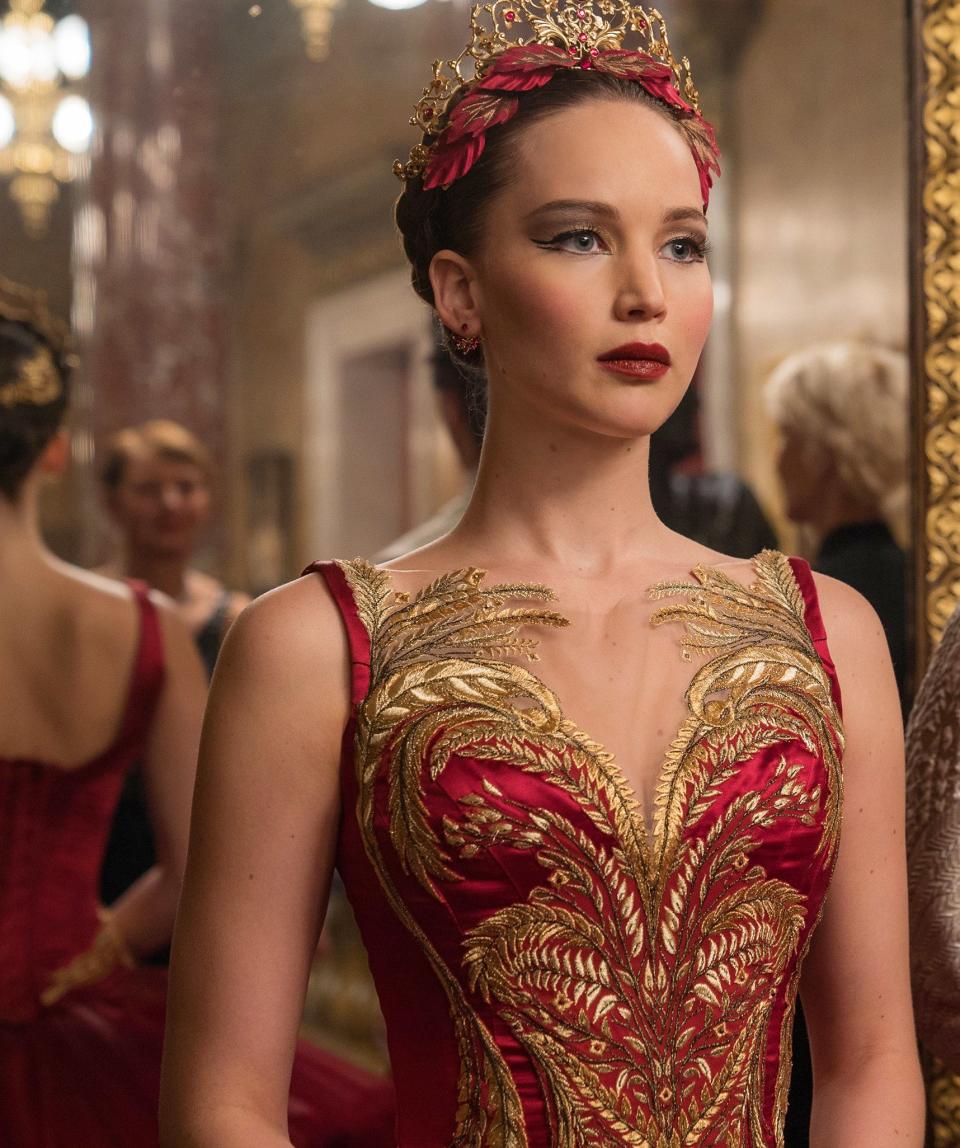Warning: This post mentions disordered eating.
In a society with ever-changing body standards and a seemingly endless number of people sharing diet and weight loss tips online and on magazine covers, you may feel a lot of pressure to change how you look. However, celebs and influencers who treat weight loss like a “get rich quick” scheme don’t always mention the potential negative side effects of following their advice.
Here are 11 celebs who opened up about the negative side effects of extreme dieting:
1.In a 2024 Instagram post, Jameela Jamil said, “Yesterday I got the results from my bone density scan. I have been in a lot of pain lately, and it turns out 20 years of dieting has hurt my BONE DENSITY. My bone density. In my 30s. PLEASE PLEASE PLEASE do not let diet culture drag you to where I am.”

She continued, “I know people think I’m annoying for going on and on about the harm of not eating enough, but no compliment I have ever received is worth the pain and regret of what happens to your body when you do extreme things for fast results. My passion against diet culture is born of something that is not Holier than thou. It is a DESPERATE PLEA for you to not end up like me.”
In the caption, she added, “So much chat about the dangers of eating too much and crickets when it comes to the long term impact of eating too little. I’m so sorry to my body. I’m so embarrassed that I did this to you. You tried to keep me alive, and I tried to kill you. I will spend the rest of my life fixing you and trying to stop others from hurting their bodies. The reason I get so mad when celebrities push these ideals is because WE HAVE THE MONEY FOR THE TESTS THAT DETECT THE HORRIFIC SIDE EFFECTS OF EXTREME DIETING. Most of the people emulating celebrity bodies and eating practices do not. If they mess up their bodies there is a team of experts ready to patch them up. Most do not have that luxury. And nobody talks about it. F*** diet culture.”
According to the New York State Department of Health, eating disorders can lead to bone loss and osteoporosis, and the risk is greater the earlier and longer a person has an eating disorder.
2.In 2021, Tom Holland told GQ that, for Cherry, he quickly lost about a quarter of his body mass through crash dieting and running in a trash bag. He said, “I don’t think I would ever do that again…It was awful. Truly. It was only about ten weeks out of shooting that I realized what I was getting into and what I need to do to transform into the role…It was brutal. And then bulking up, going from a drug addict to shooting scenes as a marine? I got very sick, actually. And it’s changed my relationship with food completely. I think I would find it very difficult to find a role that would warrant that sort of abuse on my body again.”


In 2021, Mike Boyle, a celebrity trainer, told Insider, “The trash bag is 100% irrelevant, except it contributed to his state of dehydration.”
Likewise, according to a 2014 study from the European Congress on Obesity, crash dieting can diminish your muscle mass about three times more than other diets.
3.When Melissa McCarthy was cast on Gilmore Girls in 2000, “weight never came up,” but she decided to undergo a liquids-only diet under a doctor’s supervision. In 2011, she told People, “I’d never do that again. I felt starved and crazy half the time.”


In 2022, University of Plymouth associate professor of human nutrition Dr Gail Rees told the BBC, “You’d feel drained and exhausted after a week..[It] could be very damaging [long-term].”
4.Jennifer Lawrence lost weight through dieting to play an ex-ballerina in Red Sparrow. In 2018, she told Vanity Fair, “I can’t work on a diet. I’m hungry. I’m standing on my feet. I need more energy.”


“I remember having a meltdown, freaking out that I had eaten five banana chips,” she said.
In 2021, registered dietician and Nutrition Center at Scarsdale Medical Group, White Plains Hospital director Elizabeth DeRobertis told CNN, “If you are trying to lose weight and you reduce your calories too dramatically, this can leave you without the right amount of energy or fuel that you need to get through the day.”
5.In 2022, Lili Reinhart called out Kim Kardashian for her comments about crash dieting to fit into Marilyn Monroe’s dress for the Met Gala. On her Instagram story, Lili said, “So wrong. So fucked on 100s of levels. To openly admit to starving yourself for the sake of the Met Gala. When you know very well that millions of young men and women are looking up to you and listening to your every word.”




Araya Doheny / Getty Images for Revolve, Ndz / GC Images
“The ignorance is other-worldly and disgusting. Please stop supporting these stupid, harmful celebrities whose entire image revolves around their bodies,” she said.
In 2022, Elaina Efird, RD, CEDRD, CSSD, who’s The Kahm Clinic’s lead registered dietitian in Burlington, Vermont, told BuzzFeed, “The issues that arise from Kim Kardashian perpetuating a narrative to alter yourself to fit into a garment have many negative implications. Most notably, it perpetuates the narrative that you shouldn’t wear clothes at your current size and that instead you should be changing your body. It perpetuates the narrative that thinner is ‘better.’ It perpetuates the narrative that you have to look a certain way in order to wear nice clothes, which is absolutely NOT true; you can wear nice clothes at ANY size…The health risks of what Kim did include many of the serious side effects of starvation such as altered electrolytes, dehydration, dizziness, fatigue, and lightheadedness. When you severely restrict foods like she did, you are at risk for passing out and for your essential electrolytes dropping to a point where you may need to be admitted to a hospital to replenish those electrolytes. The impact of cutting out those foods causes increased obsession, negative body image thoughts, and oftentimes, an unhealthy relationship with food and body.”
6.In 2021, ex-Victoria’s Secret model Bridget Malcolm told 60 Minutes Australia that the message that she needed to be “super skinny” was made “pretty clear.” She said, “I had an eating disorder. I was reliant on anti-anxiety medication. I was having panic attacks constantly. I was exhausted. My body was malnourished, my mind was malnourished…it was relentless. What that company represented for me and for so many other women was extremely exploitative at that time.”


“To me, it felt like controlling women. Getting women as small as possible, and then not even being small enough. I’m still honestly trying to wrap my head around it,” she said.
According to the Anxiety & Depression Association of America, studies have found that eating disorders can frequently result in panic disorder.
7.Similarly, in 2018, model Robyn Lawley told the Guardian, “It’s a running joke that [Victoria’s Secret scouts] see curvier girls every year and never cast them. This whole starvation-camp situation before you have to walk that catwalk is ridiculous. Some of them are my friends on that stage; I’m not pulling them apart. But they have to put their bodies to such extremes once they cast the show, they couldn’t maintain that kind of lifestyle or they’d die.”


In the same article, a spokesperson for Victoria’s Secret said, “We would never dictate any sort of diet regimen for our models. We promote a healthy lifestyle.”
In 2018, Sarah Ballis, who’s a clinical dietitian at The Harley Street Clinic Hospital, told Express that following a restrictive eating plan like the “Victoria’s Secret diet” can lead to anemia, depression, kidney disease, brain damage, anxiety, thyroid dysfunction, gallstones, and constipation.
The dietician said, “Since the body still needs to derive energy, it switches to burning fat as fuel and produces ketone bodies, which are acidic and build up in the bloodstream. This can cause bad breath, headaches, and mood changes, and lead to a dangerous and life-threatening condition called ketoacidosis. Cutting carbs can dramatically reduce fiber and calorie intake, leading to weakness, fatigue, muscle loss, dehydration, constipation, and vitamin and mineral deficiencies.”
8.In 2018, model Mia Kang shared a side-by-side of herself on Instagram while opening up about her eating disorder recovery. She said, “Left: 2015. size 2. I hadn’t eaten solid food in 10 days and smoke a pack of Marlboro Lights a day. I was obsessed with my collarbones, ribs, and hip bones showing. I was obsessed with having a thigh gap. I was about to shoot Sports Illustrated Swimsuit for the first time and was trying to look like a VS angel. I was told by the industry I never looked better but still had a little more weight to lose. I hated how I looked so much I thought I was fat and lived in constant anxiety.”
She continued, “Right: Now. Size 8. I feel like I finally became a woman. I love my thighs, my curves. I love my strength and the fact I can probably whoop your ass. I still have insecurities as I adjust into my new body, just like everyone else. But I know my body, respect it, and love it. It isn’t easy for me to post these pictures because I still have a disease that I have to live with for the rest of my life. A small part of me looks at me now and hates it. Eating disorders and body dysmorphia don’t just disappear, but you can learn how to manage it and heal. You can reprogram your thinking. I want to put the images out there that I never had. I want to show women that it’s ok to gain weight. We have the pleasure of having fluctuating bodies, enjoy your curves, enjoy being a WOMAN. Be healthy and be confident. We have one body and one life, don’t let your insecurities hold you back from happiness.”
According to the National Institute of Mental Health, eating disorders symptoms can include distorted body image and restricted eating, like Mia experienced. However, the NIMH also says that full recovery is possible. It can consist of psychotherapy, nutritional counseling, medication, and medical care and monitoring.
9.For The Courier, Benedict Cumberbatch lost a significant amount of weight “through the usual methods of dieting, but also some extreme exercise.” In 2021, he told CinemaBlend, “It wasn’t about atrophy or lethargy, it was very much about trying to shred everything to shrink wrap my body mass around muscle. But when you do start to feel slightly kind of, I can’t remember what the word is when you… it’s horrible, but it’s basically a description for self-digestion; you also have to strip away muscle. And that’s a very nasty thing to be doing. And you get very disoriented, you feel dehydrated, you feel hungry all the time. You feel emotionally and physically very vulnerable.”


In 2020, Christy Harrison, MPH, CDN, who’s a certified intuitive eating counselor and registered dietitian nutritionist, told PopSugar, “Worrying about your weight, dieting, restricting food, restricting calories, fasting, overexercising, and other dieting behaviors can cause emotional stress in a number of different ways,”
In the same article, Rachel Berman, a registered dietician, said, “In my opinion, the emotional and physical elements are very much tied together. If you’re not eating enough during the day, particularly carbohydrate-rich foods, you may have decreased levels of serotonin, a hormone that has a calming effect. Therefore, you may feel more anxiety the more you restrict or obsess over the calories you do consume.”
10.For Will Poulter, preparing for Guardians of the Galaxy Vol. 3 required “a lot of gym work and a very, very specific diet.” In 2022, he told the Independent, “I’ve gone through periods of looking at food and feeling like I can’t face it, and then you blink and the next minute you’re ready to eat furniture because you’re so hungry…The whole social side of your life has to take a backseat. I’m in a routine that is so rigid that being able to go out for dinner with friends is not something I’ve been able to do. I’m looking forward to being able to again.”


According to the Cleveland Clinic, diets that involve restricting your calorie intake can lead to increased level of ghrelin, the “hunger hormone,” which signals hunger to your brain.
11.And finally, appearing on The Skinny Confidential podcast in 2020, model Amelia Gray Hamlin spoke about her experience with anorexia, which included trying the “master cleanse” diet. She said, “I woke up one morning at my best friend’s house. My parents and my sister, they’re all outside, waiting to pick me up. And I’m like, ‘What are you doing here?’ Like it’s Saturday morning. And they’re like, ‘Get in the car. We’re going to UCLA [to get treatment].’ …We show up, it’s like this really scary old man’s office…He looked at me, and he was like, ‘So yeah, basically at this rate, in about four months, you’re going to be 45 pounds, and you’re going to be dead.'”


“I just snapped out of it. Like I was so lucky that I was just like, ‘Yeah, I don’t want to be 45 pounds. I’m not going to be, you know, this type of person, I’m not going to ruin my life because of whatever issues I’m having. You don’t need to be skinny to, like, live your best life. Like it’s either be skinny and die or like happy and be who you are,” she said.
According to a 2022 study in the Journal of Eating Disorders, anorexia “is associated with a substantial risk of death from many medical causes.”
The National Eating Disorders Association helpline is 1-800-931-2237; for 24/7 crisis support, text “NEDA” to 741741.
The National Alliance on Mental Illness helpline is 1-888-950-6264 (NAMI) and provides information and referral services; GoodTherapy.org is an association of mental health professionals from more than 25 countries who support efforts to reduce harm in therapy.
Source Agencies


